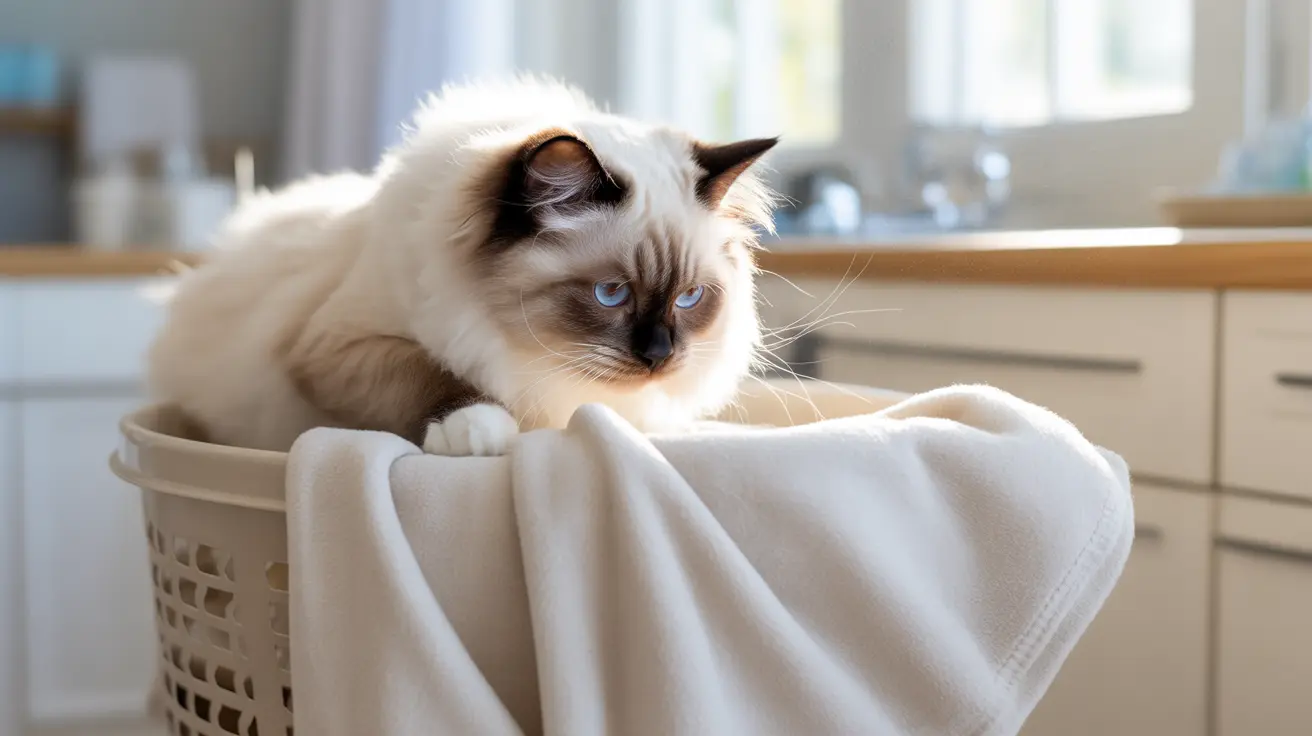Understanding Why Cat Urine Is So Challenging
Cat urine is particularly problematic because it contains uric acid crystals that bond tightly with fabric fibers. These crystals can remain dormant for months and reactivate with humidity, causing that unmistakable ammonia smell to return even after washing. Additionally, cat urine becomes more pungent over time as bacteria break down the compounds, creating an even more persistent odor.
Immediate Action Steps
The moment you discover cat urine on your blanket, take these crucial steps:
- Blot the area immediately with paper towels or clean cloth
- Avoid rubbing, which can push urine deeper into fibers
- Remove as much liquid as possible before applying any cleaning solutions
- Use a UV light to identify all affected areas, especially on patterned fabrics
The Most Effective Cleaning Solutions
Enzymatic Cleaners: Your First Line of Defense
Enzymatic cleaners are specifically designed to break down the proteins in cat urine, making them the most effective solution for permanent odor removal. Saturate the affected area completely and allow it to air dry for 24-48 hours. Multiple applications may be necessary for severe cases.
Natural Cleaning Methods
For those preferring natural solutions, try this proven combination:
- Mix equal parts white vinegar and water
- Spray the solution generously on the affected area
- Sprinkle baking soda over the dampened spot
- Let it sit for 15-20 minutes
- Vacuum thoroughly
Washing Machine Protocol
Follow these steps for machine washing:
- Use cold water for the initial wash
- Add a cup of vinegar to the rinse cycle
- Run an extra rinse cycle
- Air dry completely before checking for remaining odor
- Repeat if necessary
Prevention and Long-term Solutions
To prevent future incidents:
- Keep litter boxes clean and easily accessible
- Consider multiple litter box locations
- Watch for signs of urinary tract issues in your cat
- Address any territorial marking behaviors promptly
Frequently Asked Questions
How can I effectively remove cat urine stains and odors from blankets and bedding?
Use an enzymatic cleaner specifically designed for pet urine, followed by a thorough washing process with cold water and pet-specific detergent. For best results, allow the enzymatic cleaner to completely air dry before washing.
What are the best cleaning products to get cat pee smell out of soft fabrics like comforters?
Enzymatic cleaners are most effective for soft fabrics. Look for products specifically labeled for pet urine removal. Nature's Miracle and Anti-Icky Poo are popular choices among pet owners.
Why does cat urine smell keep coming back even after washing blankets?
Cat urine contains uric acid crystals that can remain dormant in fabrics and reactivate when exposed to moisture. Standard detergents don't break down these crystals, which is why enzymatic cleaners are essential.
Can I use vinegar, baking soda, or hydrogen peroxide safely on my cat's bedding to remove urine odor?
Yes, these household items are safe when used properly. Mix vinegar with equal parts water, or use baking soda as a deodorizer. Never mix cleaning products, and always test on a small area first.
How do enzymatic cleaners work to break down cat urine and prevent repeat accidents on blankets?
Enzymatic cleaners contain special proteins that break down the uric acid in cat urine into carbon dioxide and water, effectively eliminating both the stain and odor. This complete breakdown helps prevent cats from detecting previous markings and repeating the behavior.
Final Thoughts
While cat urine can seem like an impossible challenge, using the right combination of cleaning methods and products can effectively restore your blankets. Remember to address any underlying behavioral or health issues with your cat to prevent future accidents, and always keep your preferred cleaning supplies on hand for quick response to any incidents.






